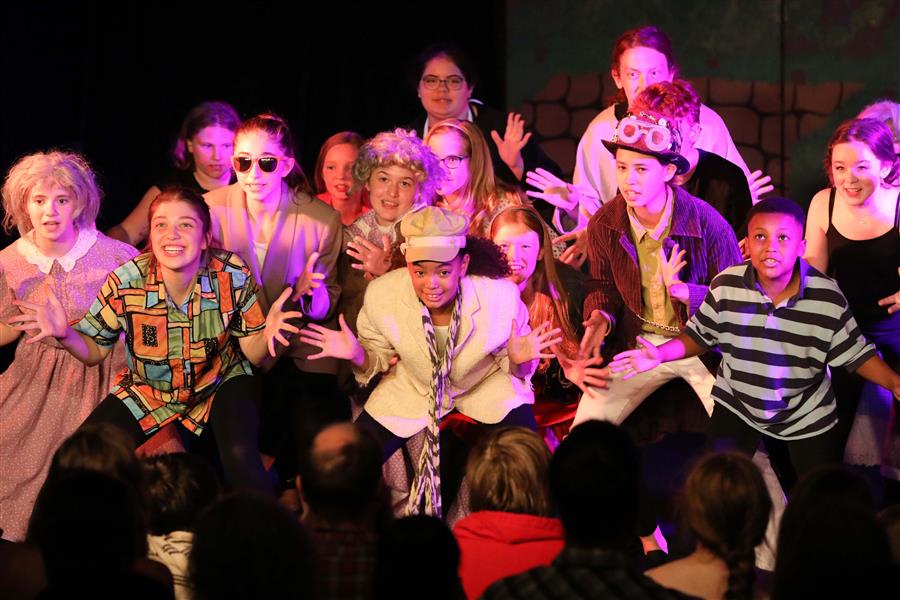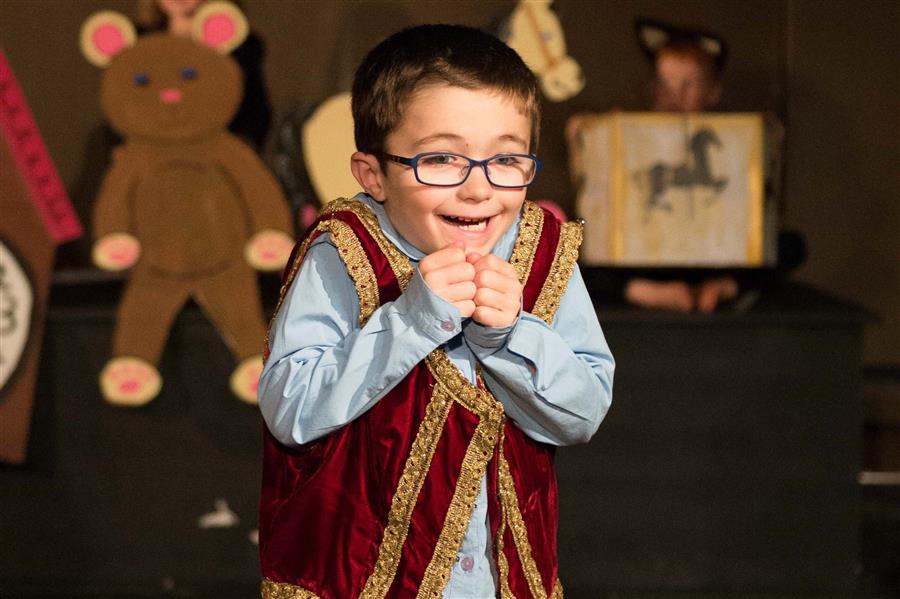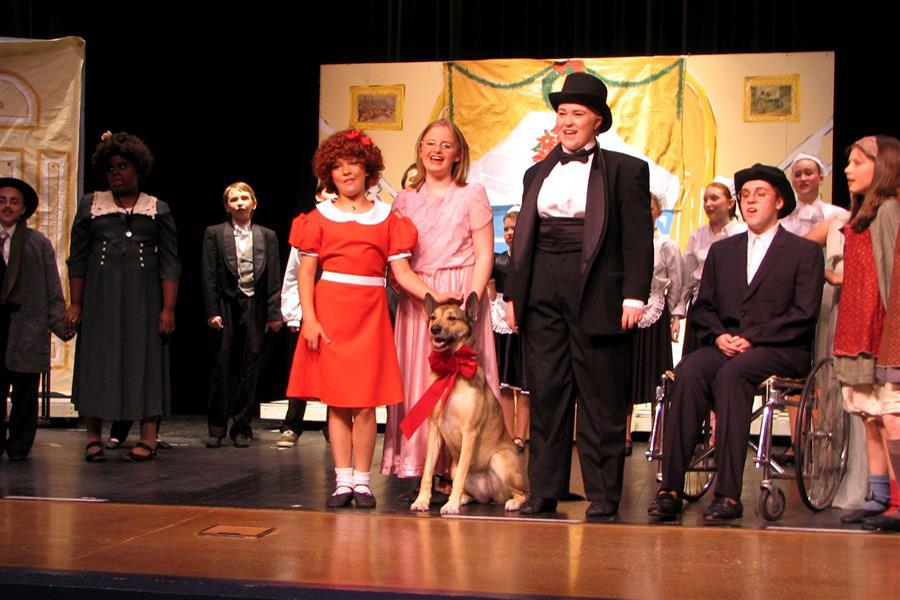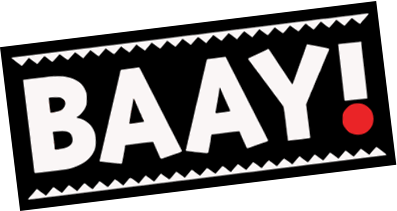

Policies

At Bellingham Arts Academy for Youth, everything we do is built on a foundation of respect – respect for ourselves, for one another, for the work that we do and for the space that we share. We strive to create an educational environment that is professional, ethical, and supportive of the growth of our students, both as artists and as community members. To that end, we ask that students and families review our Code of Conduct (see below) prior to enrollment.
We prioritize safety for all members of the BAAY community. See our policies and protocols by clicking on the pertinent headings below to read our practices and expectations for staff, students, families, volunteers, and audience members.
Cancellation Policy
Cancellation Policy
BAAY offers full tuition refunds up until the program start date. After that, partial refunds may be available depending on the circumstances of the refund request.
- For school-year programs, tuition is non-refundable after 30 days from the program start date.
- For summer camps, tuition is non-refundable after 7 days from the camp start date.
- All donations made at the point of registration are non-refundable.
Student and Community Code of Conduct
Student and Community Code of Conduct
(Revised 8/2024)
At BAAY, everything we do is built on a foundation of respect – respect for ourselves, for one another, for the work that we do and for the space that we share. We strive to create an educational environment that is professional, ethical, and supportive of the growth of our students, both as artists and as community members. To that end, we ask that students and families review our Code of Conduct prior to enrollment.
For Students
We expect that students will approach their work at BAAY with dedication and focus, as well as with respect for staff and for their fellow students. Students at BAAY are expected to:
- Attend all scheduled classes and rehearsals, unless by prior arrangement with program staff
- Be on time
- Come to class prepared and ready to focus
- Dress appropriately
- Treat one another and staff with courtesy and respect, both at BAAY and outside
- Respect one another’s personal space and physical boundaries
- Clean up after themselves
- Look for opportunities to support and encourage their peers
- Remain on campus except by written parental permission and express consent of the lead instructor or stage manager
For Staff, Parents, Caregivers & Volunteers
Children learn first by emulating the adults around them. As educators, we ask that everyone in the BAAY community strive to model behavior that fosters a culture of integrity, appreciation and mutual respect.
Disciplinary Policy
We believe that disciplinary issues can be an opportunity for growth and increased understanding. Our goal is to address and resolve disruptive behavior swiftly and fairly, through clear, direct, open and supportive communication with students and, when appropriate, their families.
- In most instances, disruptive behavior will be addressed by the staff member immediately responsible for the student (e.g. Stage Manager, Director). Persistent or serious violations may be referred to the Artistic Director.
- Parents and volunteers may be helpful by reporting any potentially disruptive behavior to appropriate BAAY staff. Please refrain from taking disciplinary action with any BAAY student other than your own child.
- In instances where constructive resolution is not possible, BAAY reserves the right to terminate or exclude anyone from our programs and facility for violating our Code of Conduct, without notice or warnings.
We welcome your feedback about BAAY’s Student and Community Code of Conduct. Please address questions, comments, or concerns to director@baay.org.
Student Rights and Responsibilities
My Rights:
- I have the right to enjoy my time at BAAY and to be treated with compassion in this learning environment.
- I have the right to express myself in this space. No one will treat me unfairly because of any aspect of my unique self. This might include: my physical appearance, gender identity, where I am from, my religion, or any disability I might have.
- I have the right to experience safety in this learning environment.
- I have the right to have my property be safe in this space.
- I have the right to hear and be heard in this learning environment. This means no one will compete with me when I have ‘the floor’ or otherwise disturb me.
My Responsibilities:
- I have the responsibility to treat others with compassion. I will not laugh at others, tease others, or intentionally hurt others’ feelings.
- I have the responsibility to respect others as individuals and treat others fairly.
- I have the responsibility to make the learning environment safe. I will move my body in ways that keep those around me safe.
- I have the responsibility to respect others’ property. I will not steal or intentionally destroy their property.
- I have the responsibility to listen to others. I will not raise my voice to talk over others or otherwise disturb those who have ‘the floor.’
- I have the responsibility to respect the facility and theatre as a learning environment. I will clean up after myself.
Teaching Philosophy
Teaching Philosophy
(Revised 3/2022)
BAAY’s mission is to enrich the lives of children through the exploration of the arts.
Through our programs, we create community, and teach confidence, character, and creativity.
- We collaborate with our students about their learning.
- We place emphasis on process over product.
- We greet students when they enter the classroom.
- We address students as people first and children second.
- We provide opportunities for embodied learning.
- We acknowledge that children learn by modeling, and that they pay attention to what we do, as well as what we say.
- We use questions to invite students to introspect and to express themselves.
- We offer students experiences of both structure and freedom.
- We accept students exactly as they are.
- We help students channel their emotions into positive actions.
- We teach our students how to appreciate one another, and provide the structure for them to do so at every class meeting.
Child Safety Policy and Procedures
Child Safety Policy and Procedures
(Revised 03/2023)
BELLINGHAM ARTS ACADEMY FOR YOUTH
Child Abuse Prevention Policy for Staff & Volunteers*
*For the purposes of this policy, “Volunteers” refers to volunteers that work directly with children or have access to children.
A foundational commitment of BAAY is to provide a healthy atmosphere for the growth and development of children. Thus, the abuse, mistreatment or neglect of children and the resulting severe effects are of primary concern to BAAY. Child abuse is mistreatment or neglect of a child by parent(s) or others, including BAAY employees or volunteers, resulting in injury or harm. Abuse can lead to severe emotional, physical, and behavioral problems. Because of its concern for the welfare of children, BAAY has developed policies and training to aid in the detection and prevention of child abuse. In addition, all employees and volunteers are screened and a background check is conducted upon hiring, rehiring or at any time BAAY desires to do so. All employees or volunteers working directly with children will also receive training in recognizing signs that a child is being groomed for abuse. This policy is intended to protect any BAAY participant ages 18 and under, and participants may be referred to as children, child, youth, or student. BAAY employees and volunteers are expected to follow these policies:
General Guidelines
- All staff and volunteers will be easily identified by wearing BAAY issued identification.
- Students must be in direct supervision of a supervising individual at all times.
- Rooms that allow for unnecessary privacy or limit line-of-sight supervision will remain locked or will be routinely checked by staff.
- The organization has zero tolerance for abuse, mistreatment, or sexual activity among youth within the organization on the premises. BAAY is committed to providing all students with a safe environment and will not tolerate the mistreatment or abuse of one student by another student. Conduct by a student that rises to the level of abuse, mistreatment, or sexual activity will result in intervention or disciplinary action, up to and including, dismissal from the program.
- Additionally, BAAY will not tolerate any behavior that is classified under the definition of bullying, and the organization will take the necessary steps to eliminate such behavior.
Working with Children Guidelines
- You will avoid being alone with a single child, unless you are supervising your own child.
- In the rare occasion that you are forced to be in a situation where you are one-on-one with a child, you must adhere to the following guidelines:
- Notify other employees or volunteers that you are alone with a child.
- Remain in full view of others and, if you are in a room, leave the door open.
- Ensure that physical and verbal interactions align with BAAY’s established policies and are limited to the task at hand.
- Document and immediately report any unusual incidents, including disclosures of abuse or maltreatment, behavior problems and how they were handled, injuries, or any interactions that might be misinterpreted.
- Staff and volunteers must not develop a one-on-one relationship or have one-on-one contact with children who participate in BAAY programs outside of approved BAAY activities without the advanced written approval of your supervisor or volunteer coordinator. For example, babysitting, weekend trips, foster care, etc. are not permitted. Prior relationships with participants will be documented and brought to the attention of the supervisor or organization leadership.
- Dating a program participant is not allowed.
- Staff and volunteers may not transport youth participants to and from BAAY programs in their own vehicles, unless they are your own child, family member, or fall under previously defined prior relationship with written permission from the parent or guardian.
- Giving gifts to children in BAAY programs is not allowed.
- Children shall not be disciplined by use of physical punishment or by failing to provide the necessities of care in any circumstance.
- Employees and volunteers are prohibited from speaking to students in a way that is, or could be construed by any observer, as harsh, coercive, threatening, intimidating, shaming, derogatory, demeaning, or humiliating. Employees or volunteers must not initiate sexually oriented conversations, or discuss their own sexual activities with participants. Discussions in front of children should never include content regarding the personal private life of staff, volunteers, or other program participants.
- All physical contact between staff or volunteers and students should promote a positive, nurturing environment while protecting students, employees, and volunteers. All physical contact will be defined according to the age group. Staff and volunteers are expected to respect every student’s wishes and boundaries with regard to any physical contact.
- Children have the right to say “no” to physical contact unless such contact is related to the child’s health and safety, or the safety of other participants.
- Affection shown should never be done in isolated areas where staff or volunteers are not visible to other adults.
- Children are not to be touched in areas of their bodies that would be covered by a bathing suit.
- In addition, children must be informed, in a manner that is age appropriate to the group, of their right to set their own “touching” limits.
- Any inappropriate physical contact by employees or volunteers towards children in our programs will result in disciplinary action, up to and including termination of employment.
Social Media Guidelines
- Any private electronic communication between staff or volunteers and youth involved in BAAY programs is prohibited. This includes texting, messaging through social media platforms, and emailing from a non-BAAY account. All forms of electronic communication must be copied to the staff’s supervisor or parent of the youth.
- Communication through “organization group forums” is the only acceptable form of interaction with youth through social media.
- Staff and volunteers are not allowed to take photos of youth participants on personal devices. Only photos released by BAAY to the public can be saved.
- Staff and volunteers are prohibited from possessing or viewing inappropriate information or pornography on the organization’s property or equipment. This includes any messages, communications, or materials that are sexually oriented or those that depict pornography or nudity.
- Staff and volunteers will use best efforts to prevent all students from taking pictures or videos of students in the facilities and/or program areas.
Program Guidelines
- Students will be greeted when entering the facility and directed to their structured activity or authorized area.
- Students will be signed into programs by a staff member or volunteer. Students ages 14 and under will be signed out by a staff member or volunteer when they confirm that the child is with their authorized guardian.
- Some program areas are closed to public access and those areas will be monitored by staff and volunteers to prevent unauthorized entry and/or observation.
- All youth guidelines are considered part of the Child Abuse Prevention Policy.
- No students will be permitted to attend a BAAY program or activity without a current registration form or program roster on file and in possession of the staff supervising the program. Activities open to the public are the exception to this policy.
Reporting Suspicious or Inappropriate Behaviors or Policy Violations
- Because BAAY is dedicated to maintaining zero tolerance of abuse, it is imperative that every staff member actively participates in the protection of our students. In the event that staff observe any suspicious or inappropriate behaviors and/or policy violations on the part of other staff or volunteers, it is their personal responsibility to immediately report their observations. At our organization, these policies apply to everyone.
-
- Examples of suspicious or inappropriate behaviors between staff and youth:
- Violation of the abuse prevention policies described above
- Seeking private time or one-on-one time with a student
- Buying gifts for an individual student
- Making suggestive comments to a student
- Picking favorites
- If staff witness suspicious or inappropriate behaviors or policy violations from another staff or volunteer, the staff or volunteer is instructed to do the following:
- Interrupt the behavior
- Report the behavior to a supervisor, director, or other authority
- Examples of suspicious or inappropriate behaviors between staff and youth:
- If you are not comfortable making the report directly, you can make it anonymously at baay.org/report
- If the report is about a supervisor or administrator, contact the next level of management
- Document the report, but do not conduct an investigation
- Keep reporting until the appropriate action is taken
Reporting Suspected Abuse Guidelines
-
- Any information regarding abuse or potential abuse must be documented in writing. All staff and volunteers are required to sign a statement informing them of their legal and ethical duty to report suspected child abuse or neglect.
- As required by mandated reporting laws, employees and volunteers must report any and all disclosures or suspected abuse or neglect within 24 hours, whether on or off property, to state authorities. In addition, any suspected or known abuse or neglect will be reported to the department supervisor or a member of management within 12 hours. Failure to do so will be grounds for termination.
- In the event that BAAY has reason to believe that a staff or volunteer member abused a child, their conduct will be reported to the appropriate authorities including the Bellingham Police Department and Child Protective Services. The employee will be separated from any possible contact with children.
- Confidentiality of information related to child abuse is crucial and should be limited to the immediate supervisor and organization leadership, designated staff or volunteers, and legal counsel.
- Employees and volunteers are required to fully cooperate with an investigation by BAAY, any law enforcement agency, or any other authorized outside agency. Failure to do so is considered misconduct and will result in termination, or ineligibility to volunteer.
- Any form of abuse or mistreatment from one student to another will be reported to a supervisor and taken seriously and appropriate action will follow.
- There will be no retaliation against an employee who, in good faith, reports suspected abuse.
Additional guidelines for employee and volunteer response to incidents or allegations of abuse:
- If you witness abuse, safely interrupt the behavior immediately.
- If abuse is disclosed to you, assure the individual disclosing that they were correct to tell you.
- Protect the alleged victim from intimidation, retribution, or further abuse to the extent possible.
- Be sure to document the incident, disclosure, or any circumstances causing your suspicion of abuse according to incident reporting and documentation requirements. State only the facts.
- It is not your job to investigate the incident, but it is your job to report the incident to your supervisor in a timely manner.
- Check back to make sure appropriate steps were taken. If not, report again to your supervisor or the designated organization authority.
All staff and volunteers are required to sign a statement indicating that they have read and agree to comply with all organizational policies as outlined in the BAAY employee or volunteer onboarding materials.
Review of all youth abuse prevention policies for relevance, utility, necessity and modifications or deletions, as appropriate, will be conducted annually. All staff and volunteers will be systematically notified of any changes as they are implemented.
Sexual Harassment Policy
Sexual Harassment Policy
(Revised 10/2021)
Statement of Policy
It is the policy of BAAY to maintain a learning and working environment that is free from all forms of discrimination, including sexual harassment. Sexual harassment is a form of misconduct which undermines the integrity of the employment and/or volunteer relationship and the educational environment.
Sexual Harassment Defined
Sexual harassment does not refer to casual conversations or compliments of a socially acceptable nature. It refers to behavior which is unwelcome, offensive, interfering with effectiveness or creating uneasiness in the BAAY environment. Sexual harassment consists of:
- Unwelcome sexual advances or
- Requests for sexual favors or
- Sexually-motivated physical contact or
- Other verbal or physical conduct or communication of a sexual nature if
- Submission to that conduct or communication is made a term or condition, either explicitly or implicitly, of obtaining an education or employment; or
- Submission to or rejection of that conduct or communication by an individual is used as a factor in decisions affecting that individual’s education or employment; or
- That conduct or communication has the purpose or effect of substantially interfering with an individual’s educational or work performance, or creating an intimidating, hostile, or offensive educational or work environment.
Such conduct, whether committed in the BAAY environment or workplace by students, employees, volunteers, parents, or guardians, is specifically prohibited. This may include, but is not limited to:
- Sexually suggestive looks or gestures
- Pressure for dates or sexual activity
- Unnecessary brushes or touches
- Offensive sexual graffiti, pictures, or photographs
- Disparaging remarks about one’s gender identity or use of sexually demeaning terms
- Deliberate and unwelcome touching, cornering, pinching, or pulling on clothing
- Sexual jokes or teasing
- Attempts to kiss or fondle
- Hazing, pranks, or other intimidating behavior directed toward an individual because of their gender identity
- Requests for sexual favors in exchange for grades, promotions, or salary increases
Reporting Sexual Harassment
If a member of the BAAY staff or a BAAY volunteer feels they have been sexually harassed by another staff member, or a patron, they must report it to the Artistic and Operations Director immediately. The Leadership Team will then support the staff member in filing a statement and the Leadership Team will make necessary decisions based on the nature of the harassment incident.
